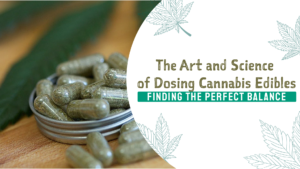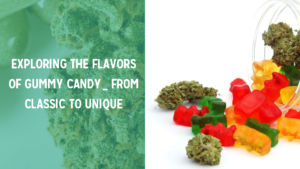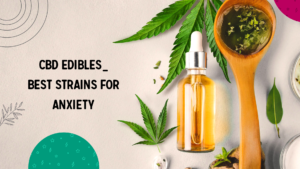
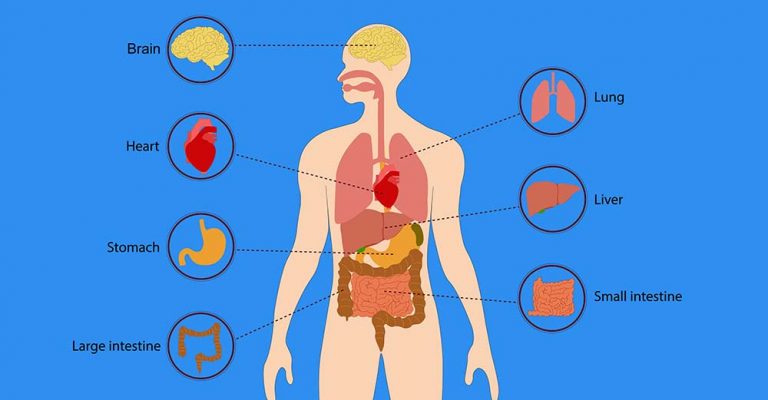
Are you worried that cannabis edibles, such as cannabis gummies, will cause liver damage? Since inhaled cannabis causes lung damage, it makes sense to question whether ingested cannabis will cause liver damage.
If you are concerned about the potential harm caused by cannabis, you are not alone. Even though cannabis gets a bad reputation for lung damage, it does not necessarily mean it will be bad for your liver.
What are edibles?
Cannabis edibles are food products or supplements that contain cannabis or cannabis compounds like CBD or THC. There is a vast range of cannabis edibles that include baked goods, like brownies and cookies, confectionery, drinks, and supplements. However, more recently, cannabis gummies are becoming increasingly popular.
Cannabis gummies are popular because the amount of CBD and THC you add to this product can be easily altered to suit your needs. For instance, you may want CBD but no THC. Or, you might like to try different ratios of CBD and THC in your gummies.
There have been over 400 different compounds identified from the cannabis plant, but CBD and THC are the most common compounds extracted and added to edibles like cannabis gummies.
CBD
Cannabidiol, also known as CBD, is the non-psychoactive compound of cannabis (1). CBD is currently being researched for its increasing number of therapeutic benefits. So far, researchers have discovered that CBD is best for:
- Inflammation
- Pain
- Convulsions
- Muscle tension
- Anxiety
- Depression
- Stress
- Vomiting and nausea
THC
Tetrahydrocannabinol, also known as THC, is commonly referred to as the psychoactive compound of cannabis because it can make people feel high (2). Like CBD, THC is also being researched for several therapeutic benefits. So far, researchers have discovered that THC is best for:
- Inflammation
- Pain
- Muscle tension
- Vomiting and nausea
- Increasing appetite
Before you try making your own cannabis gummies, you might wonder if these compounds are safe for your liver. Of course, since the liver is a vital organ, you will want to protect it the best you can.
Liver function
The liver is an organ that is located on the right side of your abdomen, just below your diaphragm (3). The liver can perform multiple functions, including:
- Detoxifying unwanted compounds that have entered your body.
- Creating new proteins for your body to utilize.
- Creating digestive enzymes to break down your food.
- Metabolism.
- Storing glucose.
- Regulating red blood cells.
Liver disease and damage
There are a number of liver diseases or causes of liver damage (4). When the liver becomes damaged, the function of the liver becomes compromised. In some cases, certain conditions can be mitigated. However, some damage can be irreversible.
Therefore, you must protect your liver. Knowing what causes liver disease and damage will be beneficial if you are looking at ways to maintain the health of your liver.
Here are some of the key factors that contribute to liver disease:
Alcohol
Excessive intake of alcohol can cause liver damage, and drinking alcohol when your liver is already impaired is not good either.
Medications
Medications such as NSAIDs (Non-steroidal anti-inflammatory drugs) and acetaminophen (Tylenol) are known to cause liver damage if used excessively or daily for a prolonged time. Like alcohol, the use of these medications also needs to be limited when liver disease or damage is already present. In addition, other medicines can cause liver damage. However, your doctor will discuss this with you since most are available through prescription only.
Hepatitis
Hepatitis is an inflammatory disease of the liver. There are many different types of hepatitis which each have different causes. Some types of hepatitis are caused by viruses, while others are linked to autoimmunity.
Genetic diseases
Genetic diseases such as hemochromatosis, Wilson disease, and alpha-1 antitrypsin deficiency can also alter the function of the liver and cause damage.
During the late stages of liver disease, cirrhosis can occur (5). Cirrhosis is when the liver stops regenerating healthy tissue, and scarring inside the liver occurs. Cirrhosis cannot be reversed, and if you have cirrhosis, you should be even more mindful.
Overall, the key message to take away is that if you have liver disease or damage, you need to be very careful. Avoiding damage is essential so that, if possible, your liver can recover or not be damaged further.
Therefore, when using edibles, you need to beware of what exactly causes liver damage. Otherwise, you may think that the edibles are the cause of the problem, when in fact, it could be something entirely unrelated that you need to avoid or treat.
The liver and cannabis
Firstly, many experts recommend that cannabis should not be ingested alongside alcohol (6). Hence, it would be best for your liver to not mix your edibles or cannabis gummies with alcohol.
Secondly, experts also mention that when your liver is damaged it has difficulty detoxifying and metabolizing certain compounds like CBD or THC (7). Because of this, your liver might have trouble clearing cannabis after you have ingested it.
Lastly, another possibility that you should beware of is potential drug interactions (8). If you are taking other medications, it might be best to check with your doctor first whether it is safe to take them alongside cannabis. Theoretically, evidence suggests that when cannabis interacts with certain medications, this may alter how cannabis or those medications are metabolized. Therefore, when this occurs, the liver may become damaged.
At the moment, there appears to be a lot of conflicting research. While some research states that cannabis might alleviate some liver disease, other studies suggest that it could make it worse (9, 10, 11, 12). If you are in this situation, it would be best to consult a doctor first before using edibles.
But what if none of this applies to you, will cannabis still cause liver damage?
At this stage, new evidence of whether it is entirely safe or unsafe is still emerging. However, you might be at lesser risk.
If you are currently healthy and not aware of any issues, then here are some things that you need to consider.
Long-term cannabis use can sometimes mask new health problems that emerge after you start taking cannabis edibles (13). In particular, health problems related to your digestive tract and possibly the liver.
Another thing to be aware of is that the long-term effects of cannabis have not been studied well enough (14). Because of this, there is no absolute certainty as to whether long-term use of edible cannabis is entirely safe for the liver.
What can you do to avoid liver damage while using edibles?
- Avoid using alcohol with your edibles.
- Check that it is safe to mix cannabis with any medications you are taking.
- Limit and monitor the amount of edible cannabis that you use daily.
- If you have liver disease or damage, ask your doctor if it is safe for you to use cannabis.
- Maintain a healthy lifestyle and diet.
- Check in with your doctor if you have any new concerns about your health.
Summary
If you have a healthy liver, you may have a lesser risk of developing liver disease or damage if you use edibles moderately. However, you need to take caution if you use edibles and already suffer from liver disease or damage.
As more research emerges, there will be greater insight on this topic. But for now, if you still have any concerns, it would pay to visit your doctor.
Recent reviews
-
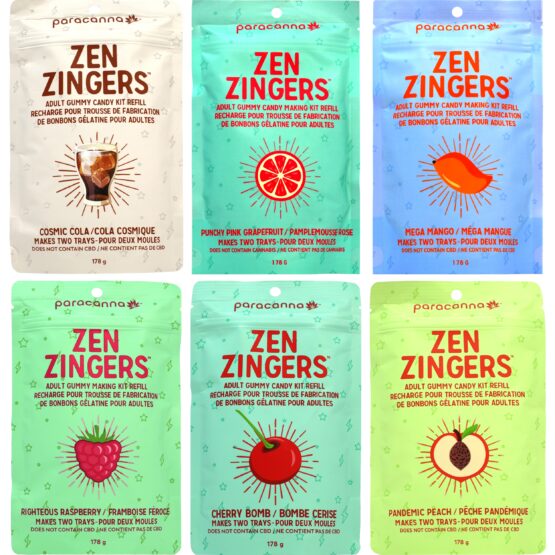 Refill Mixed 6 Pack
Rated 5 out of 5by tara blazek
Refill Mixed 6 Pack
Rated 5 out of 5by tara blazek -
 Refill Mixed 6 Pack
Rated 5 out of 5by facepersonface
Refill Mixed 6 Pack
Rated 5 out of 5by facepersonface
Recent Articles
Featured Products
-

Righteous Raspberry Gummy Making Kit
Rated 5.00 out of 5$24.99 Add to cart -
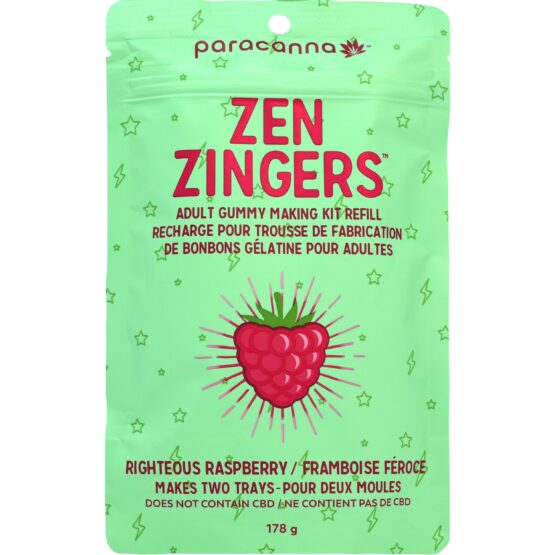
Righteous Raspberry Gummy Mix Refill
Rated 4.85 out of 5$18.99 – $68.37 Select options This product has multiple variants. The options may be chosen on the product page

